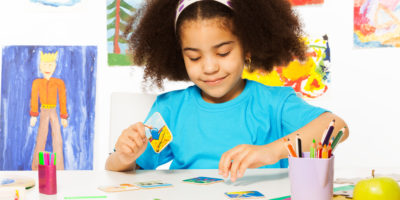It can be stressful when you do not know how to handle problem behaviors for your child. Play therapy is a great way for children to learn skills to cope with big emotions and better communicate what they need to you, their caregiver. No matter if your child is acting out, anxious, or you aren’t quite sure, but know something is not right, play therapy can be for you and your child.
Play Therapy
THERAPY DETAILS
Play therapy takes your child’s developmental needs into consideration to help children gain the skills they need. Therapy will also focus on giving you as their parents ideas and helpful suggestions to use at home. The best part about play therapy is your child should enjoy coming because it is fun!

COMMON CONCERNS
Play therapy is great for kids with anxiety to learn to cope with their fears in a safe place. I often use mindfulness strategies to teach new coping skills that they can use anywhere they go.
Depression is often hard to spot in young children. Sometimes they are more irritable than normal, more angry, or just less interested in things they used to do. Play therapy helps to address the underlying causes of the depression and helps you meet your child’s needs.
Attention- Deficit Hyperactivity Disorder is a common diagnosis. You may choose to try play therapy to work on building attention span, increasing decision making ability, and working on focus instead of or in addition to medication. The more your child is able to practice their ability to stop and think the easier it is for them to put those skills in action when they need it most.
All kids act out from time to time, but when the methods used to work no longer seem to be effective, play therapy can help. Often there is something your child is trying to communicate with their behavior and I will partner with you to find out what that might be. This is very difficult to do when you are in the middle of the unwanted behaviors.
Examples can be physical or verbal aggression, excessive skin picking or hair pulling, cutting, poor peer relationships, oppositional behavior, or anything you are unable to manage on your own.
Sometimes scary things happen to kids from physical, emotional, or sexual abuse to car accidents or medical conditions. When these things happen you might feel like you need extra guidance and support knowing the best way to support your child. Play therapy can help by letting the child express themselves and also giving caregivers the tools they need to support the child at home.
Has your child changed schools recently? Moved into a new house? Are you going though a divorce or separation? Sometimes even positive changes have unforeseen consequences for our kids. Play therapy can be a great way for kids to express their needs and better handle changes in their life.
Therapy for kids on the Autism Spectrum can be challenging. I am certified in AutPlay which is a type of play therapy for kids on the Autism Spectrum. An evaluation of your child’s particular needs to see if play therapy can be a good fit. Typically this is not for kids with only an Autism diagnosis, more for kids who have other behavioral or emotional needs.
THERAPY PROCESS
Play therapy starts with an assessment process where I will sit down with you and your child to get a better understanding of what the concerns are and what else might be happening in your child’s life. The more information provided during this process the better I will understand what I can do to help.

Treatment varies depending on the concerns, but I will talk with you at intake about where I think therapy can be beneficial to your family. Families are always changing and it is common for the goals of therapy to change throughout the process.

Therapy sessions are often one on one with your child, but updates from parents are always an important part of the process. The more we can work together the better the outcomes will be for your child. Sessions typically start at once per week and will decrease when appropriate.
If no appointments are available, or you have additional questions, please feel free to email me at kara@nurturefamilytherapy.com.

